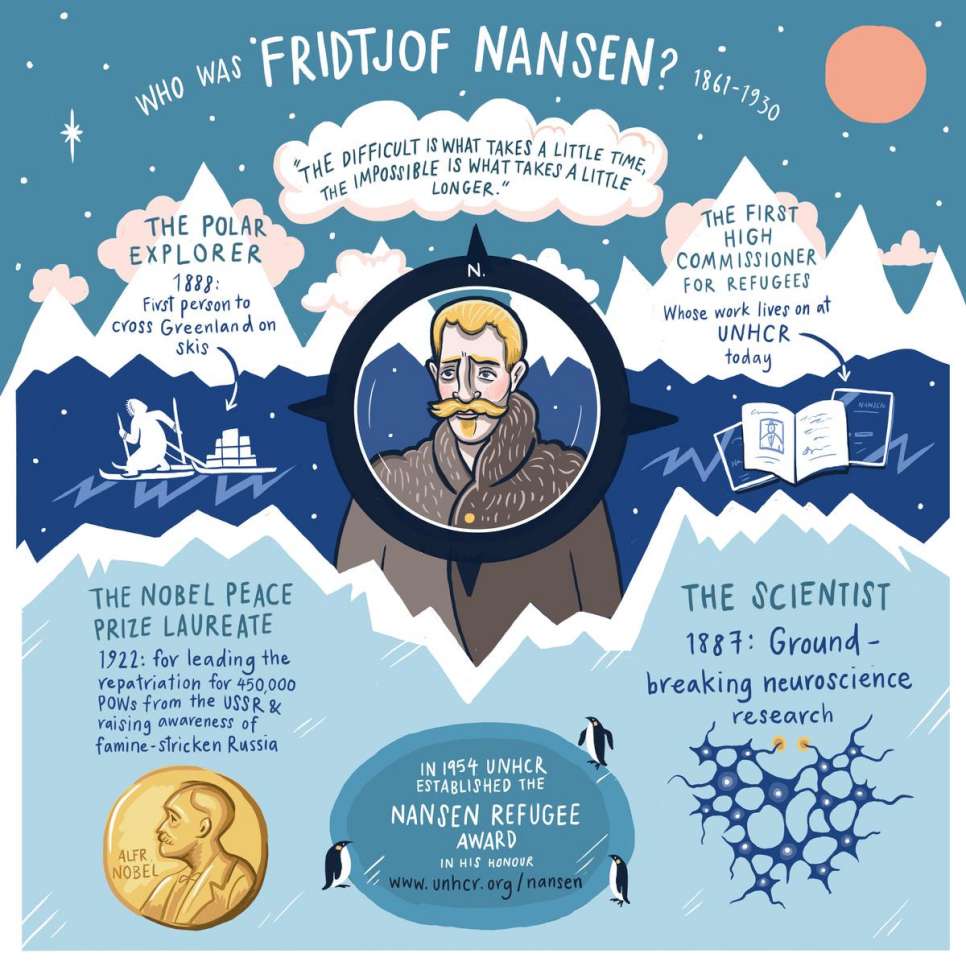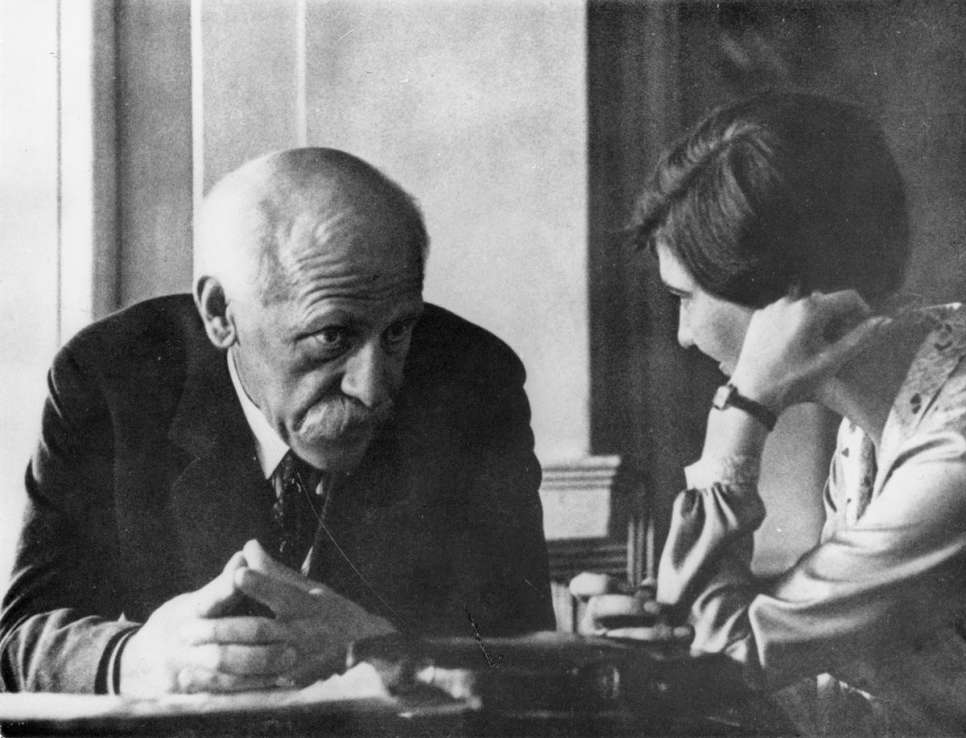About Fridtjof Nansen
"We must raise our banner in every country and forge the links of brotherhood around the world."
Fridtjof Nansen
Nansen served as the League's first High Commissioner for Refugees from 1920-1930, helping hundreds of thousands of refugees to return home. His efforts enabled many others to become legal residents and find work in the countries where they had found refuge.
Nansen saw that one of the biggest problems facing refugees was the lack of internationally recognized identification papers. His solution, which came to be known as the 'Nansen passport', was the first legal instrument for the international protection of refugees.

When famine broke out in Russia in 1921-1922, Nansen organized a relief programme for millions of its victims. For his crucial work, he was awarded the Nobel Peace Prize in 1922.
Nansen spent the rest of his years working tirelessly for refugees – and preparing for one last polar expedition. Ever a man of vision and action, he was making plans to fly a plane across the Arctic when he died in 1930, at age 69. UNHCR established the Nansen Refugee Award in his honour in 1954.

